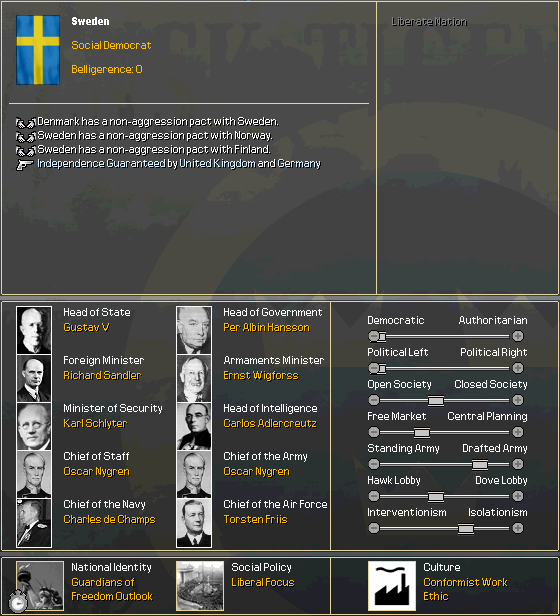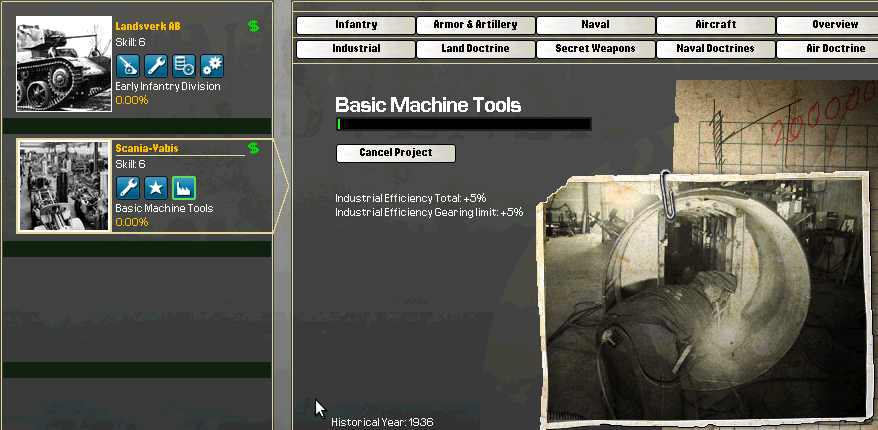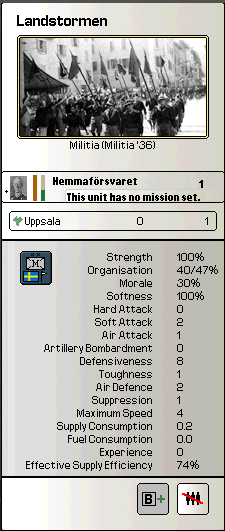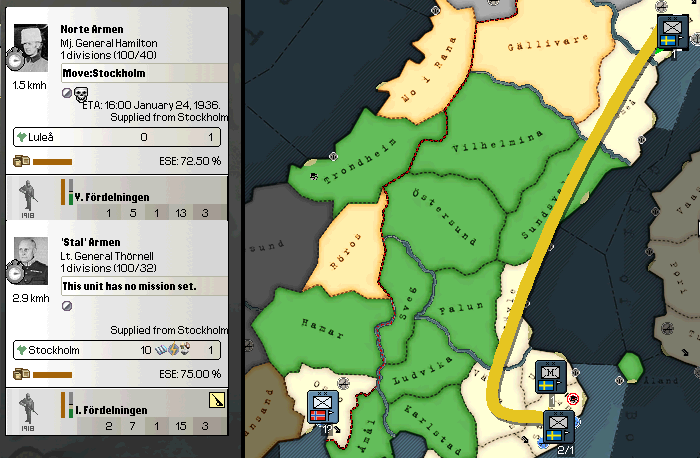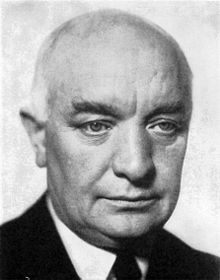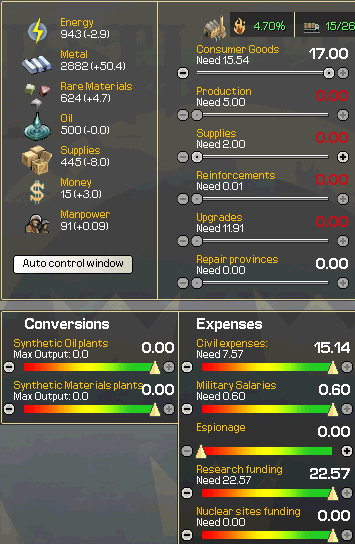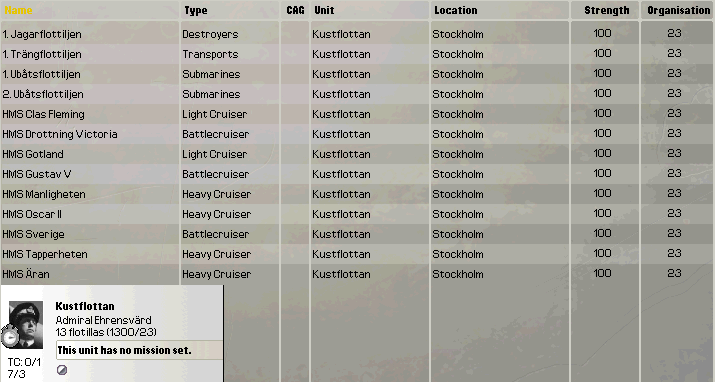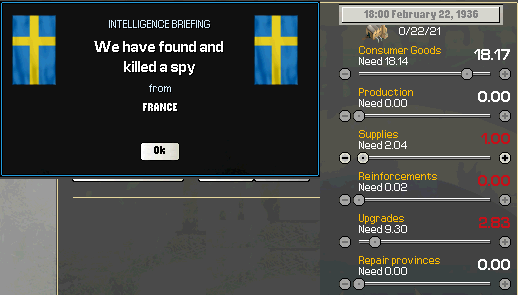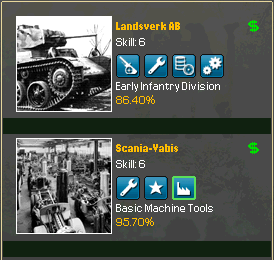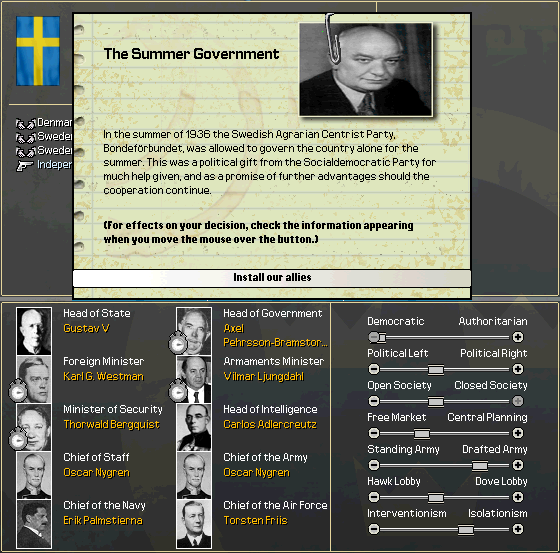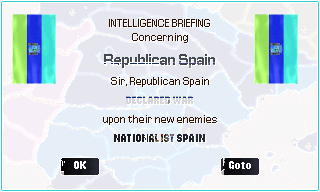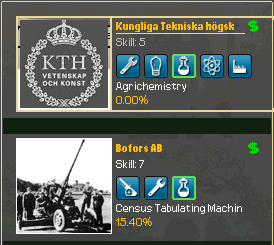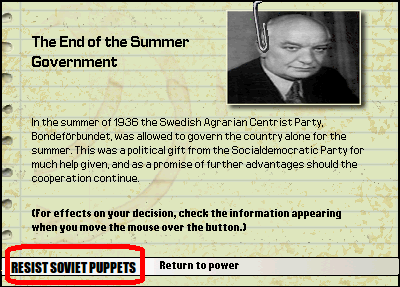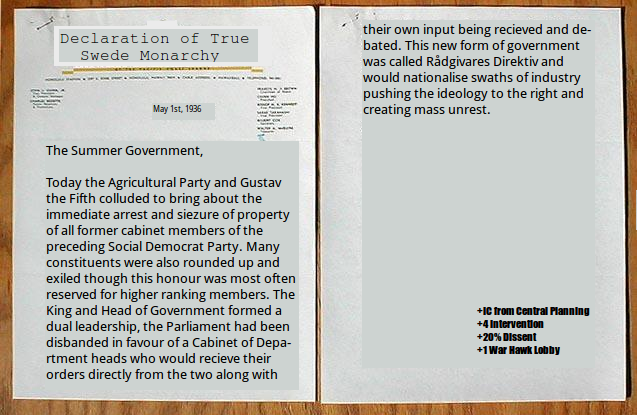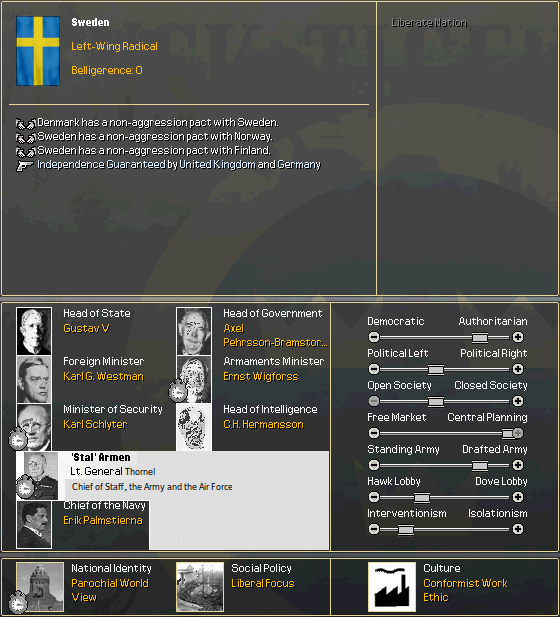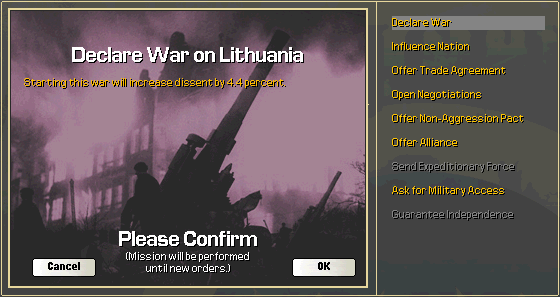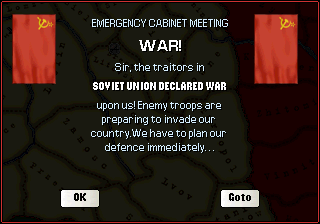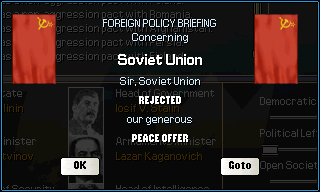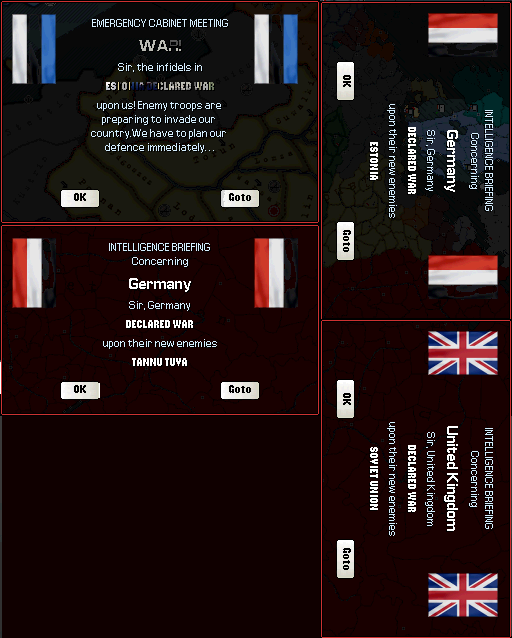Stats:
No modifications
Difficulty Normal
AI Aggressiveness Aggressive
Patch 1.07

[We] required the purchase of their main piece of military hardware, tanks. Already at an early stage, it was clear to us that if we simply chose the cannon-equipped tanks, we could have at most 15–20 of them.
—Försvarsbeslut
And thus the main military council of Sweden declared, on December 31st, 1935, that by late 1941 they would have a modern tank-equipped army. With only three infantry divisions, one of which was already on schedule to be disbanded, the man in charge of the Swedish military transition, Lieutenant General Thornel, was deeply concerned with the situation. Continued agitation in Asia also led to further speculation in their developed stock market. The new government of Hitler raised eye-brows across the world and one could do little but wonder if a storm was coming.
Besides growing unrest with the civilian government Sweden had continued to prosper their success intensified by the shared tax breaks between the Scandinavians countries of Norway and Finland. The de facto economic block continued discussions on whether to extend a hand to the developing a new country of Lithuania. The Norwegian government was for it but the Finnish, having just been freed from Soviet domination in 1917, were eager to keeps tension at an all time low. The Swedish diplomat was quick to raise a counter-offer. If the Lithuanian government was not to receive fiscal aid then the Finnish should be joined in a military pact with Sweden. The three parties grew angry, though Norway much less so, and it was clear that the issue would not be settled this year.
Author's note: So. Finnish-Swede alliance, or a babied Lithuania (this would have the effect of any alliances being formed between Lithuania, Estonia or Latvia manually dissolved) that could blossom to a Baltic-Swede alliance possibly including Finland as well but at a later date. Whichever is picked will dominate my nation's foreign policy.
Current AAR Objectives:
3 Armoured or Mechanised Divisions by November 1941 [A reward, perhaps?]
Finnish-Swede alliance or a Swede-sustained Lithuania
No modifications
Difficulty Normal
AI Aggressiveness Aggressive
Patch 1.07
[We] required the purchase of their main piece of military hardware, tanks. Already at an early stage, it was clear to us that if we simply chose the cannon-equipped tanks, we could have at most 15–20 of them.
—Försvarsbeslut
And thus the main military council of Sweden declared, on December 31st, 1935, that by late 1941 they would have a modern tank-equipped army. With only three infantry divisions, one of which was already on schedule to be disbanded, the man in charge of the Swedish military transition, Lieutenant General Thornel, was deeply concerned with the situation. Continued agitation in Asia also led to further speculation in their developed stock market. The new government of Hitler raised eye-brows across the world and one could do little but wonder if a storm was coming.
Besides growing unrest with the civilian government Sweden had continued to prosper their success intensified by the shared tax breaks between the Scandinavians countries of Norway and Finland. The de facto economic block continued discussions on whether to extend a hand to the developing a new country of Lithuania. The Norwegian government was for it but the Finnish, having just been freed from Soviet domination in 1917, were eager to keeps tension at an all time low. The Swedish diplomat was quick to raise a counter-offer. If the Lithuanian government was not to receive fiscal aid then the Finnish should be joined in a military pact with Sweden. The three parties grew angry, though Norway much less so, and it was clear that the issue would not be settled this year.
Author's note: So. Finnish-Swede alliance, or a babied Lithuania (this would have the effect of any alliances being formed between Lithuania, Estonia or Latvia manually dissolved) that could blossom to a Baltic-Swede alliance possibly including Finland as well but at a later date. Whichever is picked will dominate my nation's foreign policy.
Current AAR Objectives:
3 Armoured or Mechanised Divisions by November 1941 [A reward, perhaps?]
Finnish-Swede alliance or a Swede-sustained Lithuania
Last edited:


